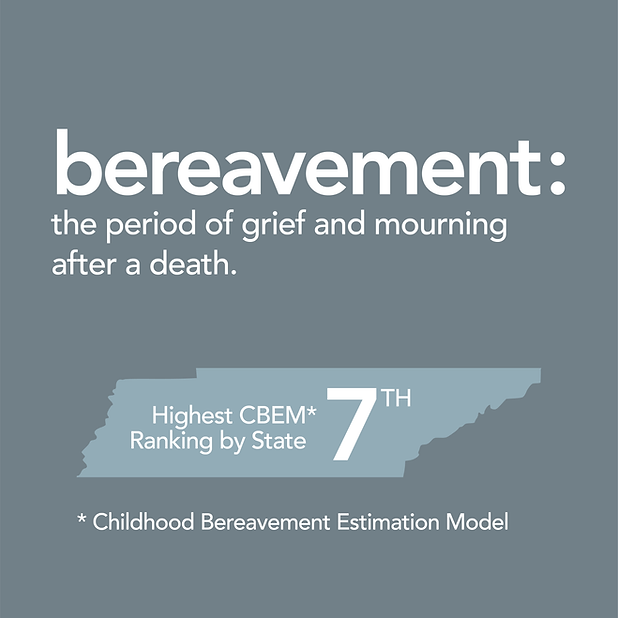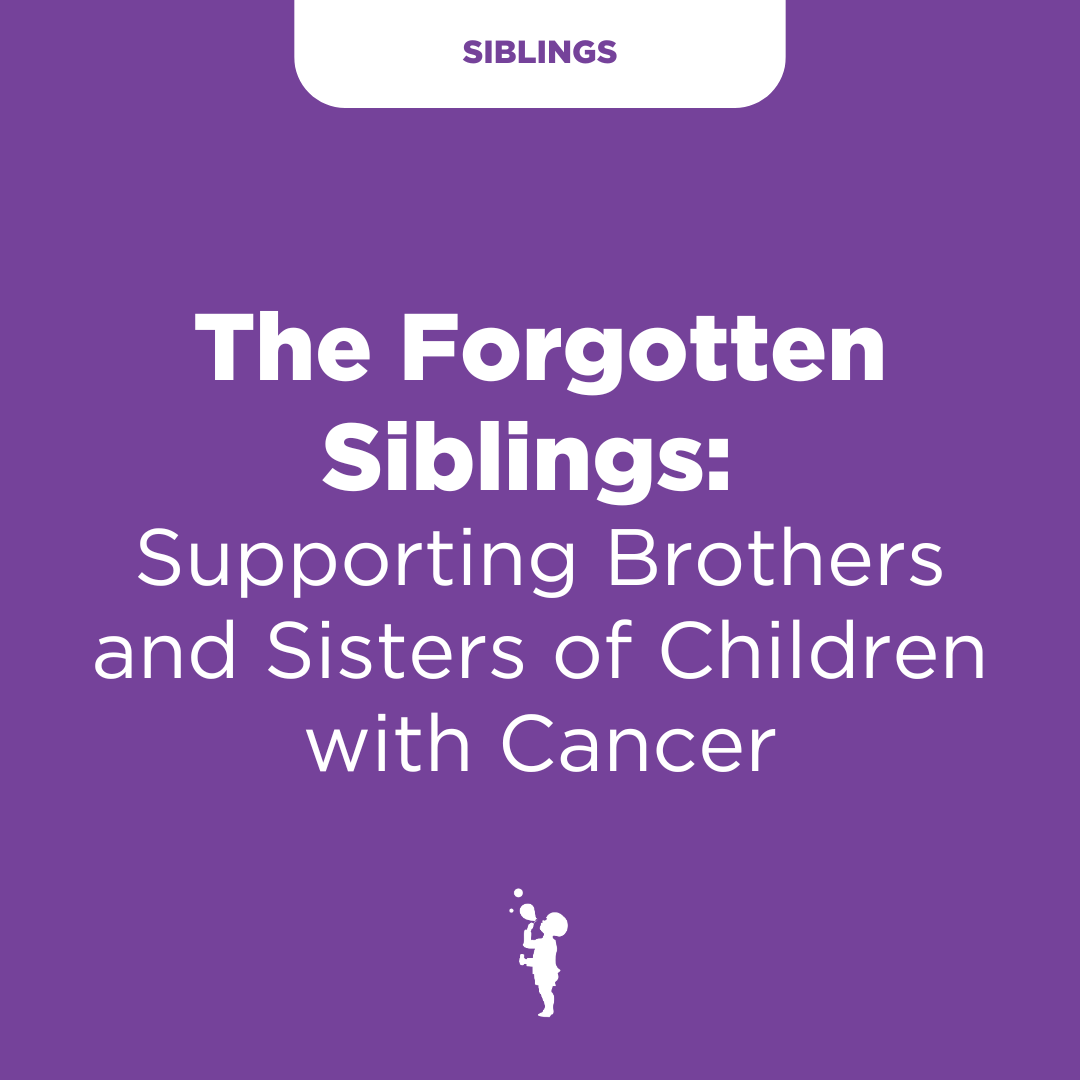The Effects of Bereavement on Children

According to the Childhood Bereavement Estimation Model, one in ten children will experience the death of a parent or sibling by age 18 in Tennessee. Tennessee is the seventh highest ranking state in this model.
Disclaimer: None of this information is definitive and should not be used as a complete guide to navigate this difficult time in a child's life. It is important to remember grief is a very fluid process. Every child deals with loss differently and at their own rate. This blog was merely written to give people an overview of how they can try to help better understand the bereaved child.
Grief is different for everyone, especially children. Mourning the loss of a loved one is arguably one of the hardest events we can go through as humans. To further explain, we've broken down how children of different ages are affected by grief.
The following information is taken from an article from MarieCurie.org and from “Helping an Adult Navigate the Many Feelings That a Kid/Teen May Experience as They Grieve” by Susan Latta LMFT, FT.
Under six months
Babies this young do not understand death, but they will notice the absence of a primary caregiver.
Six months to two years
Children at this age still will not quite grasp the understanding of death, but they may act out if their primary caregiver is absent.
Two to five years
While children may discuss death at this age, they do not fully grasp it. Often children at this age do not fully comprehend the permanence of death. For example, they may ask how grandma can breathe if buried. Many children also exhibit regressive behaviors such as bed-wetting and thumb-sucking.
Five to ten years of age
Most children know death is permanent and unavoidable by the time they turn seven. Some might require more time. While they are cognizant of death, they can be concerned that others close to them might pass away, too; for this reason, they may become more attached to the primary caregiver. Most children this age are aware of the afterlife and are fascinated by it. They can often express sympathy for other grieving family members at this age. Children may alter their visions or plans for the future. If depressed, they could try to suppress their emotions out of concern for how it will affect the rest of their family.
Adolescents
Adolescents range from ages 10-19. Most teenagers should usually have a pretty good understanding of death and its impacts; however, they may worry about changes in stability, such as who will take care of them or look after the house. They may fault themselves for the death. Often, the death of a close family member can cause a child to act out or feel unmotivated in school. Risk-taking and antisocial behavior are frequently seen as well.
Breaking the News
Explaining the death of someone to children may be difficult for a parent or family member to do. It is natural to be hesitant about what to say and how much to tell children, as well as to wish to protect them, especially when they are young and may struggle to grasp the notion of death. Even when we don't want to, our body language, moods, and behavior communicate how we feel with children. When speaking with the child, use concise language to convey the message. It is encouraged to include an explanation of the death that is age- appropriate so that the child can grasp the idea more fully. If the child is unfamiliar with the meaning of death, it is best to describe what it means to die and its permanence. When explaining death to a young child, it is best not to soften the language and to be direct. Describing the deceased as "lost," "passed," or "taken" can confuse the child and might lead them to think it might happen to them as well. After the discussion, check the child’s comprehension and rephrase any message that wasn’t clear.
The American Academy of Child & Adolescent Psychiatry (AACAP) shares that the absence of other family members, who are also grieving and may not be in the right state of mind to handle the usual job of childcare, adds to a child's shock and disorientation after the loss of a sibling, sister, or parent.
According to the Lullaby Trust, here are a few things you can do for a child dealing with losing a loved one:
- Maintain routines
- Allow for emotional expression through play, reading, and drawing
- Reassure children that they had no part in the death
- Listen to them as they express their ideas and feelings
- Give them time to ask questions
- Remind them that it is okay to have fun and laugh
- Dedicate time and affection to them
- Give them space to be alone and time to express their grief
- Prepare them on how to handle peers who ask about the death
- Accept they may find it easier to speak to someone outside the family and help them to identify who that could be
- Contact the child’s school about the death to make necessary arrangements to put in place a support system

The Austin Hatcher Foundation for Pediatric Cancer is partnering with the Children’s Hospital at Erlanger to invite any family who has dealt with pediatric cancer who have encountered the loss of a loved one due to any reason to come to “ROAD TRIP: Grief is a Journey” on July 28 from 8:30 to 3:30 p.m. This one-day event helps children age 6-12 navigate losses and learn tools that help them cope in the present and thrive in the future.
The Austin Hatcher Foundation Grief Support Program continues to grow and offers other focus areas such as grief support for teenagers and siblings. To learn more about the foundation and the programs offered, please visit www.hatcherfoundation.org. To schedule an individual appointment or tour of the foundation, call (423) 243-3471.


.png)


.png)